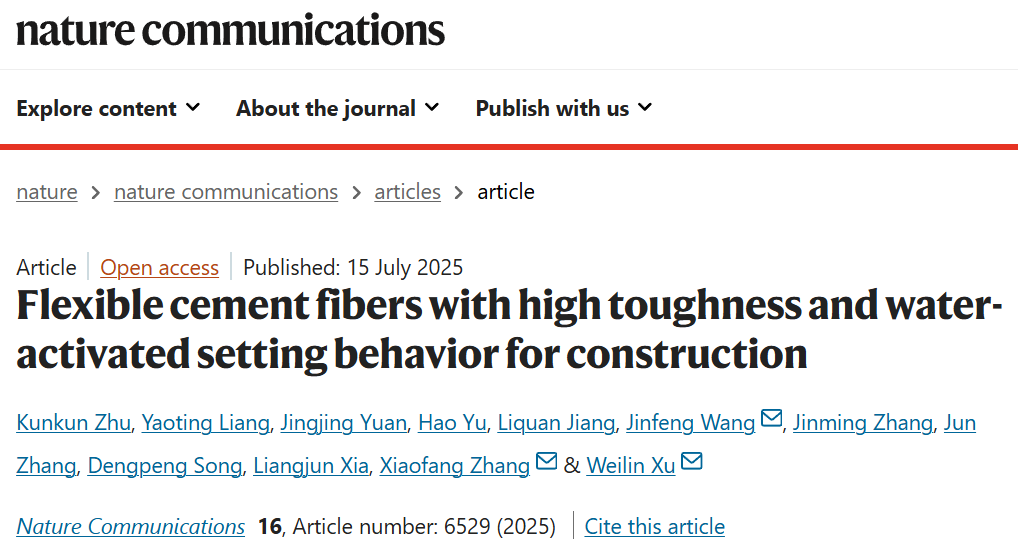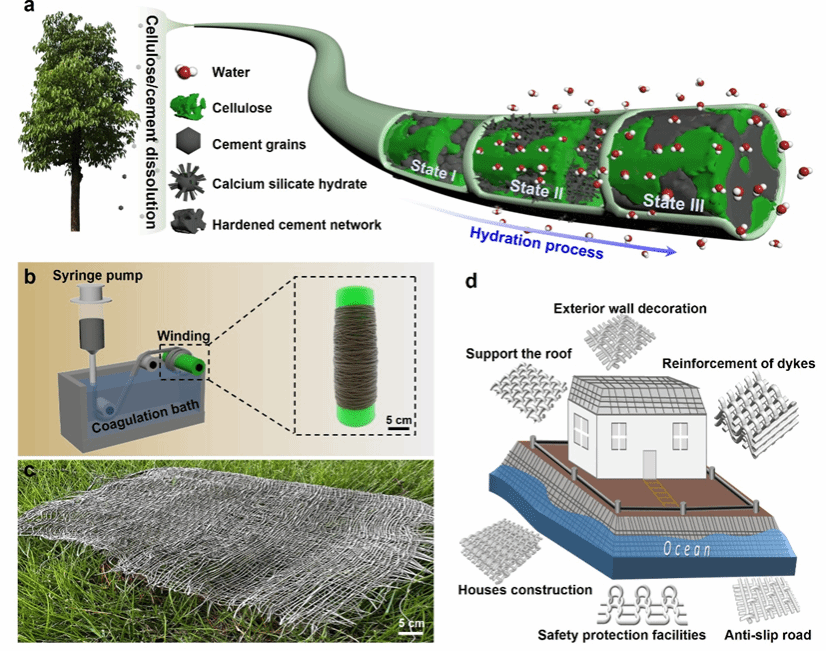On July 15, the team published a groundbreaking study titled "Flexible cement fibers with high toughness and water-activated setting behavior for construction" in Nature Communications. The paper was first authored by Associate Professor Zhu Kunkun, with corresponding authors including Academician Xu Weilin, Professor Wang Jinfeng, and Professor Zhang Xiaofang. This research introduces a novel approach to fiberizing conventional cement, resulting in cement fibers that remain soft and weavable prior to hydration and rapidly solidify upon exposure to water. Notably, the flexural toughness of the resulting cement fiber fabric is enhanced by a factor of 20 compared to conventional plain cement boards. This innovation holds significant promise for addressing the inherent brittleness and cracking susceptibility of traditional cement, thereby opening new avenues for cement applications in challenging or specialized environments. Paper link: https://doi.org/10.1038/s41467-025-61855-2

The research presents a scalable and straightforward wet-spinning method for the large-scale production of cellulose-based cement fibers, enabling in-situ embedding of cement within a cellulose matrix. Following hydration, the fibers develop into a cement-based composite featuring an interpenetrating double-network structure—comprising a rigid cementitious phase and a continuous cellulose network—with strong interfacial bonding. The resulting hydrated fiber fabrics demonstrate superior mechanical performance, particularly in terms of toughness and impact resistance, outperforming most existing cement-based composites. Importantly, these fibers can be readily processed via simple water-activated curing and seamlessly woven into complex three-dimensional architectures. Furthermore, the cement-based textiles exhibit a favorable combination of properties, including high toughness, excellent strength-to-weight ratio, lightweight nature, superior thermal insulation, effective water resistance, and compatibility with industrial-scale manufacturing. These attributes position the material for broad application potential across diverse fields such as civil engineering, architectural design, hydraulic engineering, artistic installations, and decorative construction.

Associate Professor Zhu Kunkun, affiliated with the National Key Laboratory and serving as a master’s thesis supervisor, is an awardee of the Hubei Provincial High-Level Talent Program. He previously served as an assistant researcher at The Hong Kong Polytechnic University and earned his Ph.D. from Wuhan University, along with a master’s and bachelor’s degree from Huazhong Agricultural University. His research focuses on the development and functionalization of regenerated fibers derived from natural polymers. To date, he has led eight research projects funded by the National Natural Science Foundation of China and industry partners, and has authored over 40 peer-reviewed articles in SCI-indexed journals.
